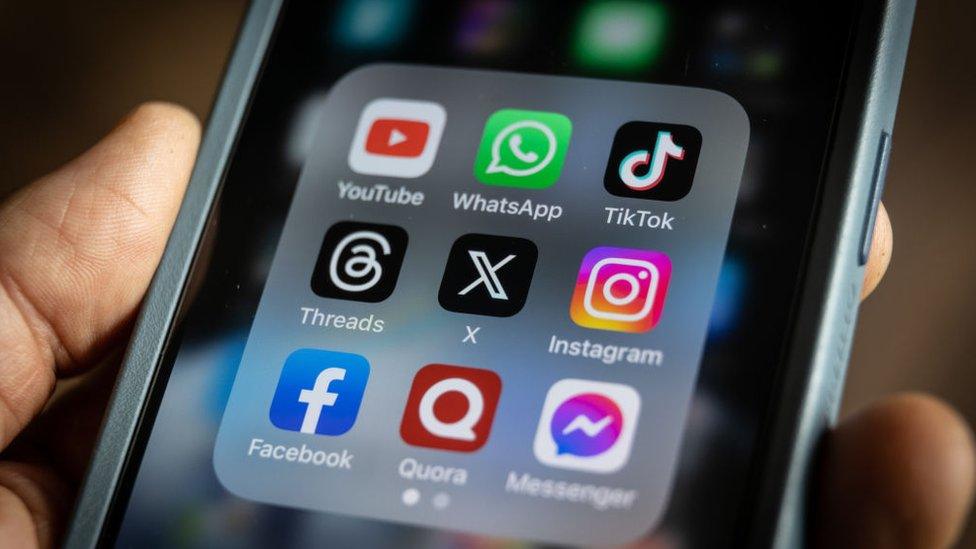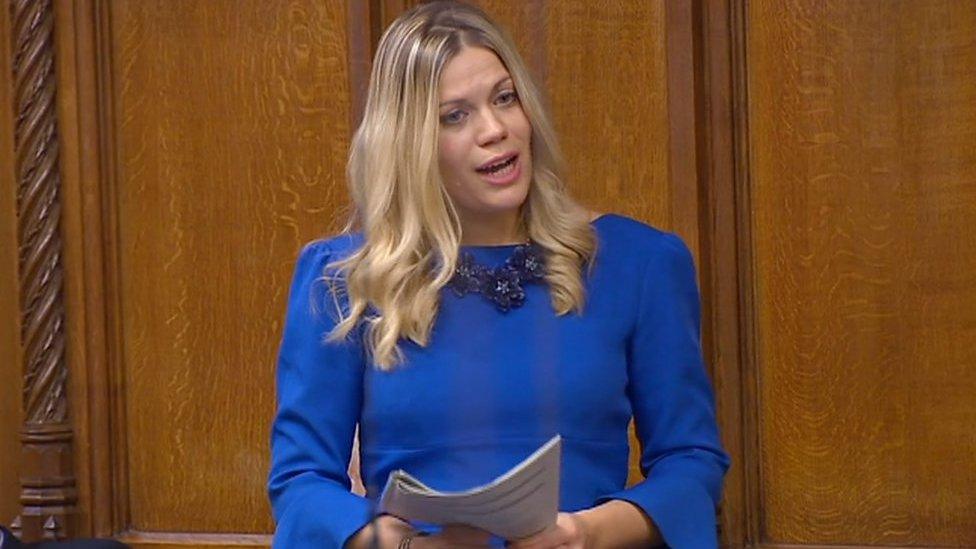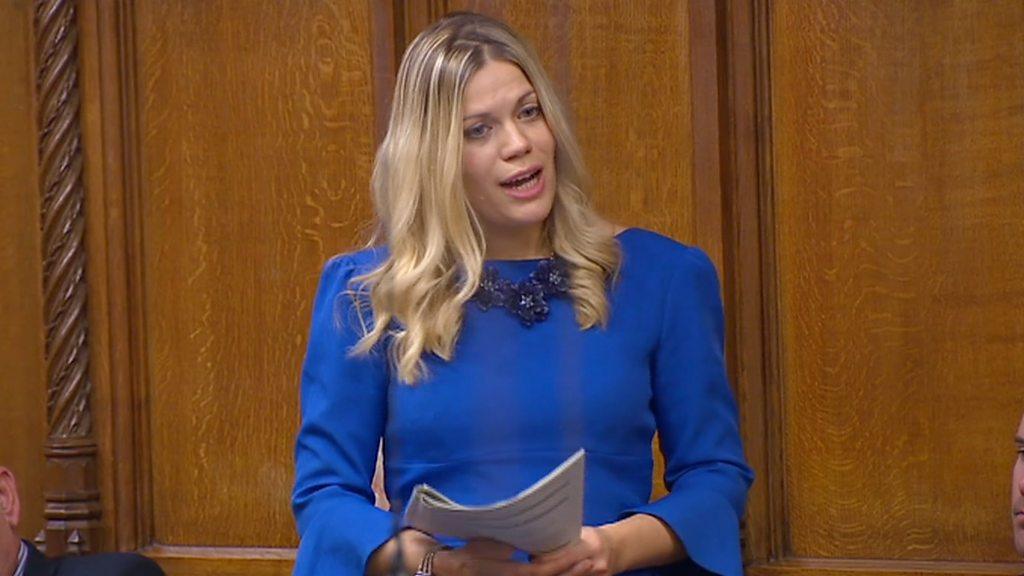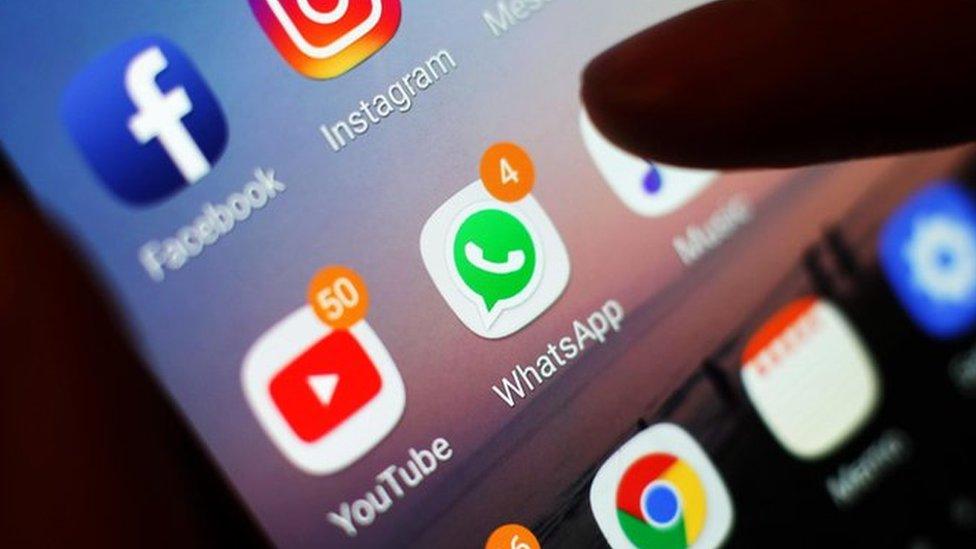Mobile phone lockers needed for schools says Miriam Cates MP
- Published

Children should be banned from social media, the MP said
All schools should have phone lockers so students are not distracted by social media apps, an MP has said.
Conservative MP for Penistone and Stocksbridge Miriam Cates urged the government to consider banning under 16s from social media and smartphones.
She told a Westminster Hall debate on Tuesday "our kids are not OK" with rising mental health issues.
Constant notifications were "causing extreme disruption in schools", she added.
Ms Cates asked for the debate after she suggested banning children from accessing social media and smartphones.
"The number of suicides, self-harm, terrible mental health, all those things have increased in particular since 2014 when smartphones and social media became almost ubiquitous amongst children," she told BBC Radio Sheffield.
Data from the Royal College of Paediatrics and Child Health, external found that since 2013 suicide rates had risen among males aged 10 to 14, and among females across all ages.
However, over the past 15 years, the UK rate of suicide among 15 to 24-year-olds had gradually fallen, the data suggested.
"The average child has 237 notifications a day," Ms Cates said. "That's destroying their concentration, so it's no surprise that this is causing extreme disruption in schools."
"What I'm pushing for, and a number of MPs are pushing for, is government to provide the funds to schools to purchase either phone lockers or phone pouches, which is how the successful schools have managed to do it."

Miriam Cates had proposed the new rules during Prime Minister's Questions earlier this year
Some schools which had banned mobile phones had better GCSE results, Ms Cates added, referencing research from think tank The Policy Exchange.
"I think the trade off is enormous," she added.
The proposed ban for young people comes after the government's recent Online Safety Bill, which became law in October, that seeks to force tech firms to take more responsibility for the content on their platforms.
The new law puts the onus on firms to protect children from some legal but harmful material, with the regulator, Ofcom, being given extra enforcement powers.
It introduces new rules such as requiring pornography sites to stop children viewing content by checking ages.
You can find more help and support about themes raised in this report via the BBC Action Line.

Follow BBC Yorkshire on Facebook, external, Twitter, external and Instagram, external. Send your story ideas to yorkslincs.news@bbc.co.uk, external.
Related topics
- Published24 January 2024

- Published19 February 2024

- Published26 October 2023
